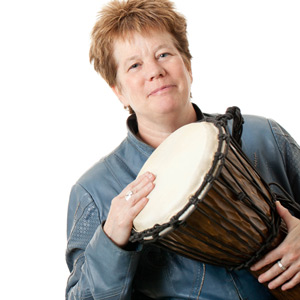フェミニストの音楽療法士:北米におけるその生き方と実践
DOI:
https://doi.org/10.15845/voices.v15i2.812キーワード:
feminist music therapists, profiles, professional identity, lives, practices, Canada & the United States of America, survey research要旨
この研究は、フェミニストの音楽療法士という自己アイデンティティを持っている北米の音楽療法士(n=50)の生活上・職業上の経験を検証するという目的の下、1890人(回答者682人)の音楽療法士を調査したものである。この調査に関する三つの先行研究(Curtis、2013d、2015、出版準備中、 a)では、1)今日の男性及び女性の音楽療法士がお互いの経験を、そしてそれぞれの1990年の経験と比較したもの、2)今日のアメリカ人とカナダ人の音楽療法士が、お互いの経験を比較したもの、そして3)コミュニティ音楽療法士という自己アイデンティティを持つ今日のアメリカ人とカナダ人について見てきた。四つ目となる本報告では、カナダとアメリカで生活し実践しているフェミニストの音楽療法士たちの経験を検証する。フェミニストの音楽療法士という自己アイデンティティを持つ50人の回答者(調査総数の7%に相当)のうち、84%が女性、16%が男性で、カナダ人が8%、アメリカ人が92%である。682人全体の回答者の内でフェミニストの音楽療法士という自己アイデンティティを持っているのはアメリカ人(5%)に比べてカナダ人(10.8%)の方が有意に多い(p<.05)。量的及び質的な分析をすることで、カナダ人とアメリカ人のフェミニストの音楽療法士に関する以下の情報がもたらされた:人口統計的情報、教育と仕事の状況、個人的・家族に関する・仕事に関する関心事、差別の感じ方、理論的志向。コミュニティ音楽療法士(68.5%)や他の回答者(67%)に比べ、明らかに多くのフェミニスト音楽療法士(98%)が、生活の中で性的偏見や差別の影響を感じていた。さらに、人種・民族や性的嗜好といった多くの他の共通要素においても、フェミニスト音楽療法士の方が(98%)差別や偏見の不安を抱えていた(コミュニティ音楽療法士74%、他の回答者76%)。フェミニスト音楽療法に関する回答者の考えの質的分析からは、フェミニストであること、信条と志向、エンパワメントと平等性のサポートといったテーマが浮かび上がった。フェミニスト音楽療法士は、自らの職業選択に関してはおおむね満足を示し、76%が他者にもキャリアとして推奨する、36%が一定の利害を説明した上で推奨するとしている。[最後に]将来的に、世界の他の地域で実践しているフェミニスト音楽療法士像について研究する必要があることを述べる。

Downloads
出版済
How to Cite
巻号
セクション
License
Articles published prior to 2019 are subject to the following license, see: https://voices.no/index.php/voices/copyright

